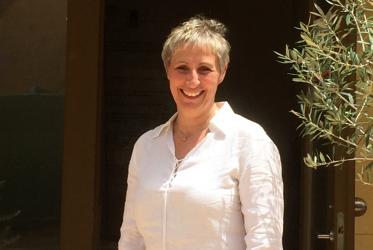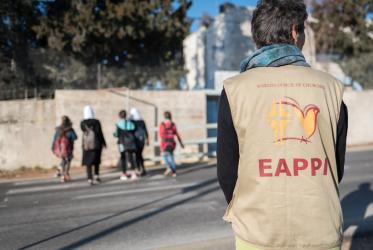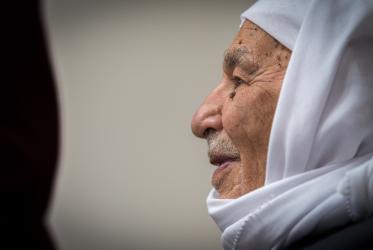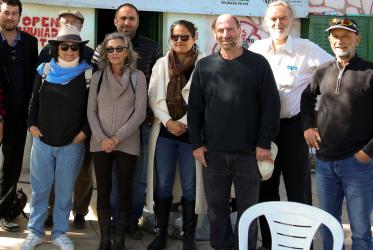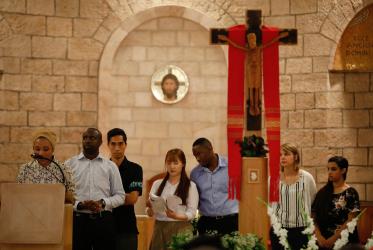Displaying 1 - 20 of 22
Dr Saïd Ailabouni: God is on the side of rejected, oppressed, occupied
12 September 2019
Rabbis walk through Hebron in solidarity
07 February 2019
WCC invites all to join World Week of Peace in Palestine and Israel
17 September 2018
Film “Tel Aviv on Fire” wins Interfilm award
12 September 2018
WCC regrets USA withdrawal from UN relief for Palestinian refugees
03 September 2018
Many ready to observe World Week of Peace in Palestine and Israel
15 September 2017
WCC gravely concerned over Israel’s travel ban
09 March 2017

